Intro
Explore birth control options, including pills, IUDs, and condoms, to find the best contraceptive method for your reproductive health and family planning needs, with information on effectiveness, safety, and accessibility.
The ability to control and plan one's reproductive life is a fundamental aspect of health, well-being, and autonomy. For individuals and couples seeking to manage their family size, prevent unintended pregnancies, or space out their children, getting birth control options is a crucial step. Birth control, also known as contraception, encompasses a wide range of methods and devices designed to prevent pregnancy. With so many options available, understanding the different types, their effectiveness, and how they work can empower individuals to make informed decisions about their reproductive health.
The importance of birth control extends beyond the individual to societal and economic levels. Access to reliable and effective birth control methods can reduce the rate of unintended pregnancies, which in turn can decrease the number of abortions, minimize the economic burden on families and communities, and improve maternal and infant health outcomes. Furthermore, birth control allows individuals to pursue educational and career goals without the immediate responsibilities of parenthood, contributing to gender equality and personal fulfillment.
In recent years, there has been an expansion in the types of birth control available, catering to a variety of needs, preferences, and lifestyles. From hormonal contraceptives like the pill, patch, and ring, to barrier methods such as condoms and diaphragms, to long-acting reversible contraceptives (LARCs) including intrauterine devices (IUDs) and implants, the array of options can seem overwhelming. Each method has its unique characteristics, benefits, and potential side effects, making it essential for individuals to consult with healthcare providers to determine the most suitable option based on their health history, lifestyle, and personal preferences.
Understanding Birth Control Options
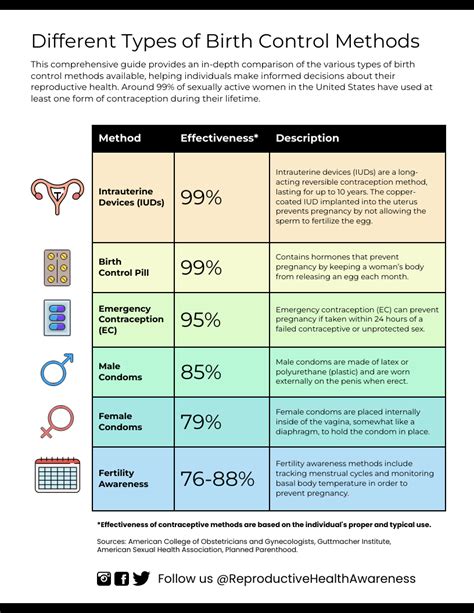
Understanding the different types of birth control is the first step in making an informed decision. Birth control methods can be broadly categorized into several groups: hormonal contraceptives, barrier methods, LARCs, and natural family planning methods. Hormonal contraceptives, such as birth control pills, patches, and vaginal rings, work by introducing hormones into the body to prevent ovulation, thicken cervical mucus to block sperm, or make the uterine lining inhospitable for implantation. Barrier methods, including male and female condoms, diaphragms, and cervical caps, physically prevent sperm from reaching the egg. LARCs, which include IUDs and implants, are designed for long-term use and are highly effective once in place. Natural family planning methods involve tracking the menstrual cycle to predict fertile days and abstaining from sex or using barrier methods during those times.
Benefits of Birth Control
The benefits of birth control extend far beyond pregnancy prevention. Many birth control methods offer additional health benefits, such as regulating menstrual cycles, reducing menstrual cramps, improving acne, and decreasing the risk of certain cancers. For example, hormonal contraceptives can help manage conditions like polycystic ovary syndrome (PCOS), endometriosis, and anemia related to heavy menstrual bleeding. Furthermore, the ability to plan and space pregnancies can lead to better prenatal care, healthier babies, and reduced maternal and infant mortality rates.Choosing the Right Birth Control Method
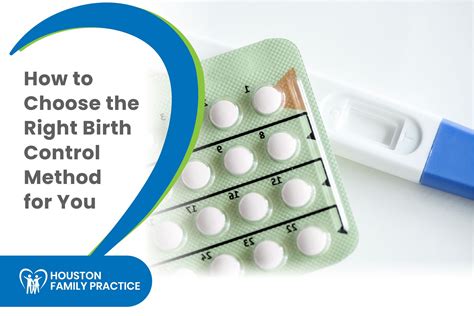
Choosing the right birth control method is a personal decision that depends on various factors, including age, health status, sexual activity level, desire for future pregnancy, and personal preferences regarding convenience, cost, and potential side effects. It's essential to consider the effectiveness of the method, as measured by its failure rate during the first year of use, as well as its ease of use and potential impact on daily life. For instance, individuals with busy lifestyles might prefer methods that require less daily maintenance, such as LARCs or the patch, while those who prefer a non-hormonal option might opt for barrier methods or natural family planning.
Effectiveness of Birth Control Methods
The effectiveness of birth control methods varies significantly, ranging from less than 1% failure rate for the most effective methods to over 20% for the least effective. LARCs, such as IUDs and implants, are among the most effective, with failure rates of less than 1%. Hormonal contraceptives, when used perfectly, also have low failure rates, but their effectiveness can decrease with typical use due to missed pills, late replacements, or incorrect application. Barrier methods and natural family planning have higher failure rates, emphasizing the importance of correct and consistent use.Access to Birth Control
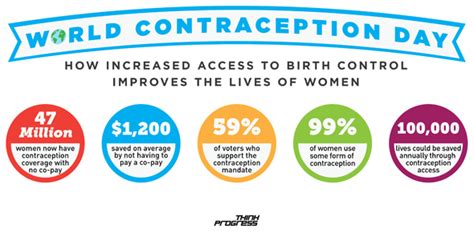
Access to birth control is a critical factor in reproductive health, with significant implications for public health, education, and economic development. Despite its importance, access to birth control remains a challenge for many individuals worldwide, due to factors such as cost, lack of insurance coverage, provider restrictions, and social or cultural barriers. Efforts to improve access include expanding insurance coverage for birth control under healthcare reform, increasing funding for family planning programs, and promoting education and awareness about the benefits and availability of birth control methods.
Overcoming Barriers to Birth Control Access
Overcoming barriers to birth control access requires a multifaceted approach that involves policymakers, healthcare providers, community organizations, and individuals. This can include advocating for policies that mandate insurance coverage of birth control, supporting programs that provide free or low-cost birth control to underserved populations, and educating healthcare providers about the latest birth control options and how to counsel patients effectively. Additionally, online platforms and telemedicine services can expand access to birth control by offering remote consultations and prescriptions, especially for those living in areas with limited healthcare resources.Birth Control and Sexual Health
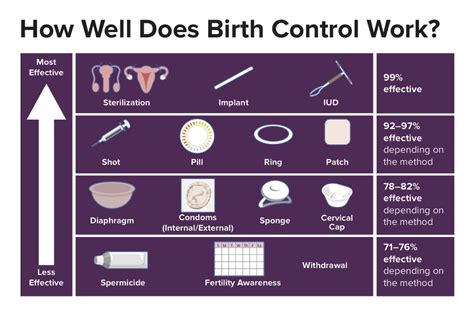
Birth control is intricately linked with sexual health, as it not only prevents pregnancy but also plays a role in protecting against sexually transmitted infections (STIs) when barrier methods are used. The use of condoms, for example, is the only birth control method that also provides significant protection against many STIs, including HIV. However, the dual protection method, which involves using a condom for STI protection in conjunction with another method for pregnancy prevention, is often underutilized. Promoting comprehensive sexual education that includes information about birth control, STIs, and healthy relationships is crucial for empowering individuals to make informed decisions about their sexual health.
Promoting Comprehensive Sexual Education
Promoting comprehensive sexual education is essential for reducing unintended pregnancies and STIs. This type of education should be age-appropriate, culturally sensitive, and inclusive, covering topics such as human development, relationships, consent, birth control methods, and STI prevention. Schools, community centers, and healthcare providers can serve as key venues for delivering this education, ensuring that young people have the knowledge and skills necessary to navigate their reproductive and sexual health effectively.Future of Birth Control
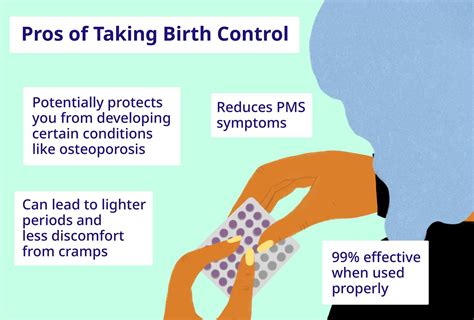
The future of birth control holds promise for even more effective, convenient, and accessible methods. Research into new technologies and formulations, such as male hormonal contraceptives, contraceptive vaccines, and improved barrier methods, aims to expand the options available to individuals. Additionally, advancements in telehealth and online platforms are likely to increase access to birth control, especially for those in underserved or remote areas. As societal attitudes towards reproductive health evolve, the development and availability of birth control methods will continue to play a critical role in empowering individuals to control their fertility and achieve their reproductive goals.
Emerging Trends in Birth Control
Emerging trends in birth control include a shift towards more personalized and user-friendly methods. This might involve the development of apps that help individuals track their fertility or remind them to take their birth control, as well as innovations in material science that lead to thinner, stronger, and more comfortable condoms. Furthermore, there is growing interest in non-hormonal contraceptives that could offer alternatives for individuals who experience side effects from hormonal methods or prefer not to use hormones for other reasons.Conclusion and Next Steps

In conclusion, getting birth control options is a vital aspect of reproductive health, offering individuals the ability to plan their families, prevent unintended pregnancies, and protect against sexually transmitted infections. With a wide range of methods available, each with its unique benefits and considerations, it's essential for individuals to be informed and empowered to make choices that align with their health needs, lifestyle, and personal preferences. As we look to the future, continued innovation, education, and advocacy will be critical in ensuring that all individuals have access to the birth control methods they need to thrive.
Call to Action
As you consider your reproductive health goals, remember that there are numerous resources available to support you. Whether you're seeking information on birth control methods, looking for a healthcare provider, or advocating for policies that promote reproductive health, your actions can make a difference. Share this article with someone who might benefit from learning more about birth control options, and consider reaching out to local organizations or healthcare providers to learn more about the resources available in your community.What are the most effective birth control methods?
+Long-acting reversible contraceptives (LARCs), such as intrauterine devices (IUDs) and implants, are among the most effective birth control methods, with failure rates of less than 1%.
How do I choose the right birth control method for me?
+Choosing the right birth control method involves considering factors such as effectiveness, ease of use, potential side effects, cost, and personal preferences. It's recommended to consult with a healthcare provider to determine the best option based on your health history and lifestyle.
Are there any birth control methods that also protect against STIs?
+Yes, barrier methods such as condoms provide significant protection against many sexually transmitted infections (STIs), including HIV, when used correctly and consistently.
How can I access birth control if I don't have health insurance?
+There are several options for accessing birth control without health insurance, including community health clinics, family planning programs, and online resources that offer free or low-cost birth control. Additionally, some pharmacies may offer birth control at a reduced cost or through patient assistance programs.
Can I get birth control online?
+Yes, many healthcare providers and online platforms offer telehealth services that allow you to consult with a provider remotely and receive a prescription for birth control, which can then be mailed to you or picked up at a local pharmacy.
